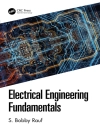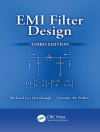A vast amount has been written on climate change and what should be our response. Rise and Fall of the Carbon Civilisation suggests that most of this literature takes a far too optimistic position regarding the potential for conventional mitigation solutions to achieve the deep cuts in greenhouse gases necessary in the limited time frame we have available. In addition, global environmental problems, as exemplified by climate change, and global resource problems – such as fossil fuel depletion or fresh water scarcity – have largely been seen as separate issues. Further, proposals for solution of these problems often focus at the national level, when the problems are global. The authors argue that the various challenges the planet faces are both serious and interconnected. Rise and Fall of the Carbon Civilisation takes a global perspective in its treatment of various solutions: • renewable energy; • nuclear energy; • energy efficiency; • carbon sequestration; and • geo-engineering. It also addresses the possibility that realistic solutions cannot be achieved until the fundamentally ethical question of global equity – both across nations today and also inter-generational – is fully addressed. Such an approach will also involve reorienting the global economy away from an emphasis on growth and toward the direct satisfaction of basic human needs for all the Earth’s people. Rise and Fall of the Carbon Civilisation is aimed at the many members of the public with an awareness of climate change, but who wish to find out more about how we need to respond to the challenge. It will also be of interest to technical professionals, as well as postgraduate students and researchers, from the environmental and engineering science sectors.
İçerik tablosu
1. The Problems We Face.- 2. Global Climate Change.- 3. Earth’s Resources Are Finite.- 4. Uncertainty in Global Environmental and Resource Problems.- 5. Renewable Energy: Too Little, Too Late?.- 6. Nuclear Energy: The Ultimate Technological Fix?.- 7. Engineering for Greater Energy Efficiency.- 8. Getting Rid of Atmospheric Carbon: Sequestration and Air Capture.- 9. Great and Desperate Measures: Geo-engineering.- 10. The New Economy.- 11. Conclusions.
Yazar hakkında
Patrick Moriarty is presently an Adjunct Senior Research Fellow in the Department of Design at Monash University, Australia. For more than three decades he has researched urban transport and urban land-use planning, with emphasis on equity and ecological sustainability issues. More recently, he has become interested in the climate change implications of different fuels/energy sources for both transport and electricity generation. This research is not only future-focussed and interdisciplinary, but also considers problems such as oil depletion and climate change in a global context. For six years in the 1970s, he taught Civil Engineering at Dar es Salaam Institute of Technology in Tanzania, and carried out field research on low-cost housing.
Damon Honnery has been involved in energy related research for more than 25 years. He currently leads the energy research group in the laboratory for Turbulence Research in Aerospace and Combustion in the Department of Mechanical and Aerospace Engineering, Monash University, Australia. His major research activities focus on the development and performance of alternative liquid fuels for transport. These activities extend into the broader areas of renewable energy systems and their potential to replace traditional energy sources and mitigate the effects of global warming. Although his focus is primarily technical, he also has a keen interest in policy and policy development, particularly as it relates to energy use and carbon emissions.












